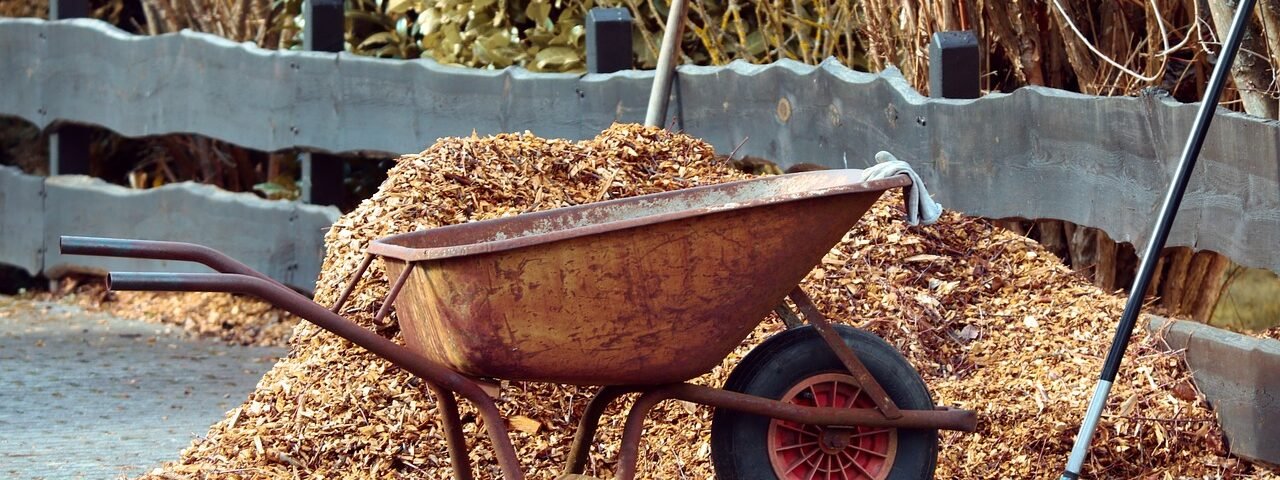Welcome to the mulch revolution! If you’re new to gardening, you might wonder what mulch is all about. The ultimate mulch guide will cover everything you need to know to get started. Well, grab your gardening gloves and let’s dig in!
What is Mulch?
Mulch is a layer of material spread over soil to retain moisture, suppress weeds, and stabilize soil temperature. Think of it as a cozy blanket for your garden.
Types of Mulch: Which One is Right for You?
Mulch comes in two main types: organic and inorganic. Each has its benefits.
Organic Mulch Guide:
- Wood Chips and Bark: Ideal for flower beds and trees . They decompose slowly, adding nutrients to the soil. They also smell great! Just keep them away from plant stems.
- Straw: Perfect for vegetable gardens. Light, easy to spread, and adds a rustic touch. Make sure it’s seed-free to avoid unwanted sprouts.
- Grass Clippings: If you mow your lawn, you have mulch! Grass clippings break down quickly and are nutrient-rich. Spread them thinly to avoid a slimy mess.
- Compost: Black gold for your garden. Compost not only mulches but also feeds your plants. Just watch out for weed seeds.
Inorganic Mulch Guide:
- Gravel and Stone: Great for paths and drought-tolerant plants. They don’t decompose but can get hot in the summer. Think Mediterranean garden.
- Plastic Sheeting and Landscape Fabric: These are weed warriors. Use them under decorative mulch to keep weeds away. Ensure they allow water to reach your plants.
Benefits of Mulch
Mulch does more than just look pretty. It’s a garden superhero.
1. Moisture Retention: Mulch keeps soil moist, reducing the need for frequent watering. Your plants will love it, and so will your water bill.
2. Weed Suppression: Mulch blocks sunlight, preventing weeds from sprouting. Less weeding means more time for relaxation.
3. Soil Health: Organic mulches decompose, adding nutrients and improving soil structure. Your plants will thank you with lush growth.
4. Temperature Regulation: Mulch acts as an insulator, keeping roots cool in summer and warm in winter. It’s like a year-round vacation for your plants.
Common Mulch Problems and Solutions
Not all mulch moments are magical. Here are some issues and how to solve them.
1. Pest Problems: Mulch can be a haven for pests. Termites love wood mulch, so keep it away from your house foundation. Slugs and snails can also hide in mulch, waiting to munch on your plants. Solution: Use cedar or cypress mulch to repel insects. Turn mulch regularly to disturb pest habitats.
2. Over-Mulching: More mulch isn’t always better. A thick layer can suffocate plant roots and encourage rot. Solution: Aim for 2-4 inches and keep mulch away from stems and trunks.
3. Color Considerations: Dyed mulches (red, black, etc.) can add color but might contain chemicals. Solution: Stick with natural or use colored mulch sparingly.
Applying Mulch: A Step-by-Step Guide
Ready to mulch it up? Here’s how to do it right.
- Prep Your Area: Weed the area and water it well.
- Choose Your Mulch: Pick the type that suits your garden’s needs.
- Spread Evenly: Aim for 2-4 inches deep. Too thin, and it won’t be effective; too thick, and it could harm your plants.
- Keep Clear: Leave space around plant stems and tree trunks to prevent rot and pest problems.
- Be careful: My chiropractor refers to Spring as “mulch season” and said his practice has about a 10% uptick in the Spring from people ‘leaning in’ to gardening a bit too enthusiastically.
Mulch and Pests: The Dirt
Mulch can be both a friend and foe when it comes to pests. It provides shelter for beneficial bugs but also for pests. To keep the peace:
- Use cedar or cypress mulch; they repel insects.
- Turn mulch regularly to disturb pest habitats.
- Monitor for pests and act quickly if you spot trouble.
Mulch Color: The Art of Garden Glam
Mulch doesn’t just benefit your garden; it can beautify it too. Natural mulches blend seamlessly into your garden, while colored mulches can add a dramatic touch. Ensure the dye is non-toxic.
Mulch Fire Hazard Warning
While mulch is great for your garden, it can pose a fire risk. Dry mulch, especially wood chips and straw, can catch fire easily in hot, dry conditions. To reduce the risk:
- Keep mulch at least 18 inches away from your home and other structures.
- Regularly water mulch to keep it moist, especially during dry spells.
- Avoid smoking or using open flames near mulch beds.
For more detailed information, you can refer to this resource from the National Fire Protection Association (NFPA).
Wrapping It Up
Mulch is like the Swiss Army knife of gardening. It retains moisture, suppresses weeds, and beautifies your garden. Choose the right type, apply it correctly, and keep an eye out for pests. Happy gardening, and may your mulch be ever in your favor!


